Film Name:暴裂無聲 / Villain / Wrath of Silence
I’m late. This review should have been written and shared a week ago, but it’s only now making its belated appearance… Still, I believe it’s never too late for articles about good films.
For “Villain”—a film with a niche subject matter—to garner so much attention, we must mention director Xin Yikun’s earlier work, “The Coffin in the Mountain.”
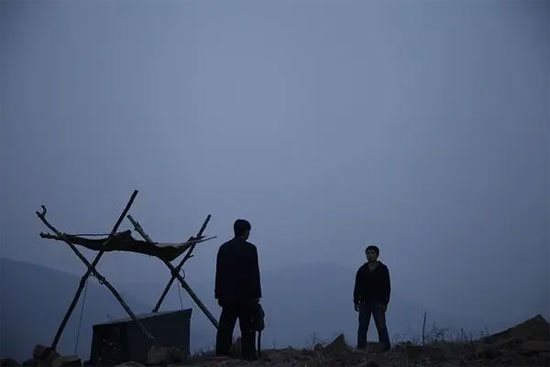
I was fortunate enough to see this film in theaters back in 2015 and, naturally, became one of its enthusiastic supporters afterward. This exquisitely structured, sharply realistic, and absurdly powerful tale earned Xin Yikun considerable acclaim and respect, inevitably boosting anticipation for his second feature.
Where there’s attention, comparisons inevitably follow—that’s only natural. Yet I disagree with those who claim “Villain” falls short of “The Coffin in the Mountain.” While the latter is polished and ingeniously crafted, it remains somewhat raw and unpolished in its “cinematic language.” relying more on its non-linear narrative of bizarre tales to earn acclaim. In contrast, the former, judged by its techniques and effects, feels like a more “polished” film—one that is at least its equal.
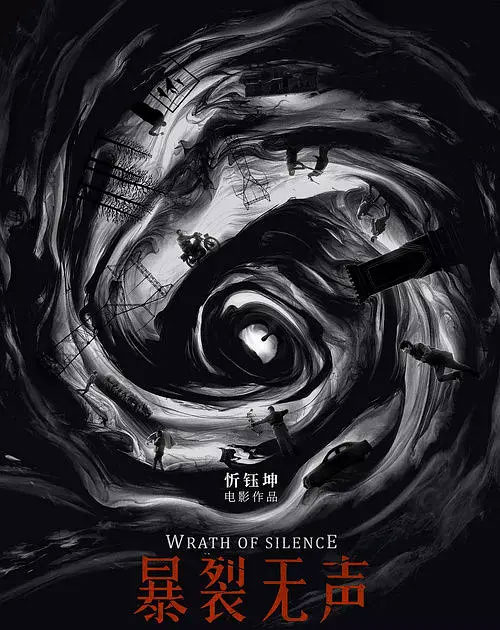
[Spoiler Alert: The following contains plot details.]
Xin Yukun’s artistic evolution lies in his mastery of cinematic language and metaphor beyond straightforward storytelling. These techniques now serve as powerful narrative tools, enriching the viewing experience by offering audiences multiple layers of sensory enjoyment alongside the unfolding plot.
Take the ubiquitous motif of “sheep” in the film, for instance. This choice extends far beyond Xin Yukun’s roots in Inner Mongolia and his personal connection to sheep. Rather, this domestic animal serves as the most potent symbol of the rigidly stratified social hierarchy at the heart of the story.
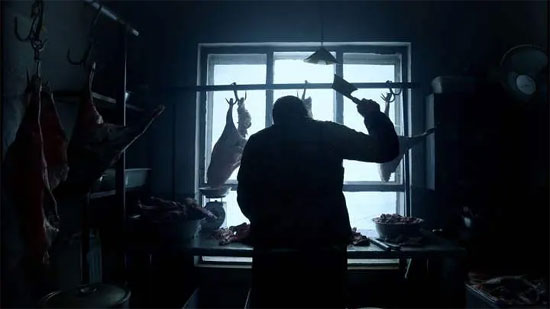
The missing child, Zhang Lei, tended sheep; restaurant owner Old Ding slaughtered them; and many more consumed them… On the surface, sheep occupy the lowest rung of this food chain, their fate hinging on the attitudes of those above them—Zhang Lei cherished his sheep, keeping lambs indoors, while most viewed them merely as a source of meat.
In the film, Chang Wannian naturally occupies the apex of this food chain. His remark to Boss Li—”Vegetarianism isn’t good for you; sheep eat plants too”—reveals their true dynamic. Chang coerced and intimidated him into selling the company not because of some fabricated “reporting,” but because Boss Li was the only “sheep” in the vicinity who had never yielded a single bite of meat to him.
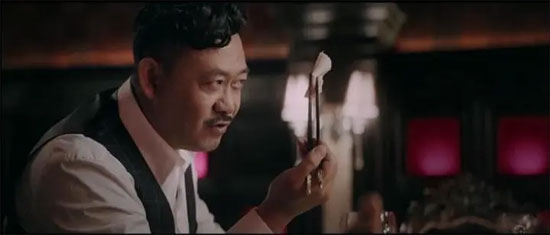
If you’re the sheep and I’m the wolf, then it’s only natural that I devour you.
From the film’s unique “triangular dynamic,” Chang Wannian is a vicious wolf tearing flesh, Zhang Baomin a headstrong ram charging with horns, while Xu Wenjie is a crippled sheepdog bought off by the wolf, unable to bark.
The affairs between these three are clear to any attentive viewer. Here’s a brief outline: Coal magnate Chang Wannian bribes lawyer Xu Wenjie to rig a court case in his favor. In his celebratory mood afterward, he goes hunting for a sheep but ends up wounding/killing shepherd boy Zhang Lei. Old Ding’s son, Xiao Ding, is the sole eyewitness. Chang Wannian coerces Xu Wenjie into helping him dispose of the body. Afterward, he discovers the arrowhead is missing and suspects Xu Wenjie of plotting against him—thus setting off the chain of events depicted in the film…
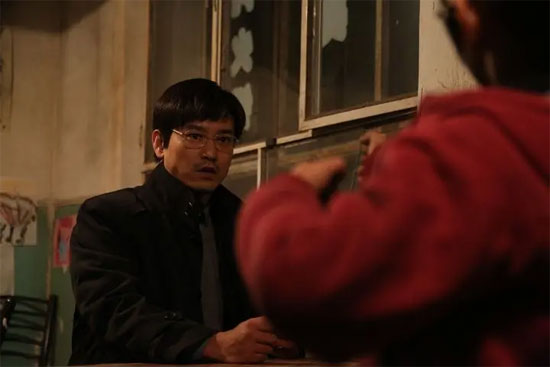
While certain plot points require further scrutiny (multiple possibilities exist, such as whether Chang Wannian actually shot Zhang Lei dead on the first attempt), the general storyline unfolds as described. Countless scenes in the film gradually piece together this truth: Xu Wenjie’s excessive fear of Chang Wannian, Chang Wannian’s soft-spoken manner toward Zhang Baomin, Xiao Ding’s persistent odd behavior, Xu Wenjie’s unusual attitude toward Zhang Baomin, the silver sedan spotted outside the village, and so on.
Moreover, many intriguing and profound details in the film have already been thoroughly discussed elsewhere, so I won’t repeat them here.
As for interpreting the title “Silent Rage,” I believe one phrase best captures the film’s taciturn tone: The upper echelons lose their composure, the middle ranks lose their morality, the lower classes lose their voice—humanity loses its dignity.
The relationship between Zhang Baomin and Chang Wannian is one of “unspoken words.”
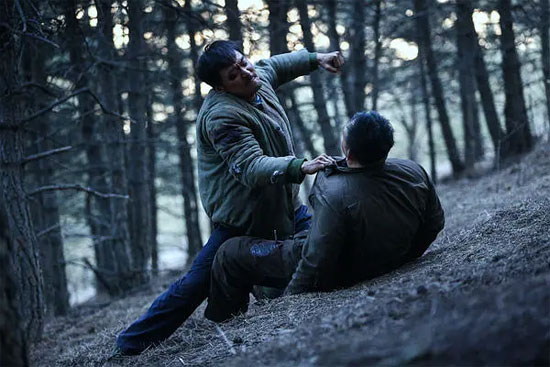
The gap in status and social class between these two men was vast. Even if Zhang Baomin’s tongue were intact, he’d likely stammer out barely a word in the presence of a big boss like Chang Wannian. Normally, Chang wouldn’t give Zhang a second glance. But now, feeling indebted to Zhang, he could only show magnanimity in smashing car windows and company property—though revealing the truth was out of the question… Thus, these two would never engage in any meaningful exchange. If anything, it would be the most primitive, wordless communication—fists and arrows.
Between Chang Wannian and Xu Wenjie lay a mutual “dare not speak.”
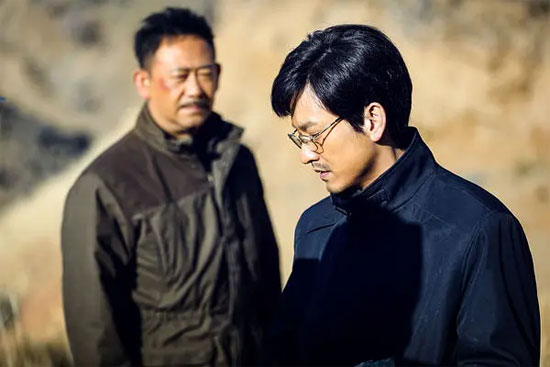
These two men had come together precisely because of their shady dealings. Driven by guilt and the need to avoid suspicion, they desperately wished to sever all ties after their collaboration. But fate had other plans. Following a civil case riddled with foul play, they found themselves entangled in an even more serious criminal case. Now, harboring their own dark secrets, they dared not speak… Hidden behind their fear and timidity lay the upper echelons’ unquestionable encroachment and control over the middle ranks. Unlike the all-out “crushing” of Zhang Baomin, Chang Wannian harbors a certain apprehension toward Xu Wenjie, whose status is closer to his own. This is precisely why he must tread even more carefully when baring his fangs. Xu Wenjie, though possessing the means to fight back, chooses instead to collude with Chang out of fear of mutual destruction.
Between Xu Wenjie and Zhang Baomin lies an unspoken taboo.
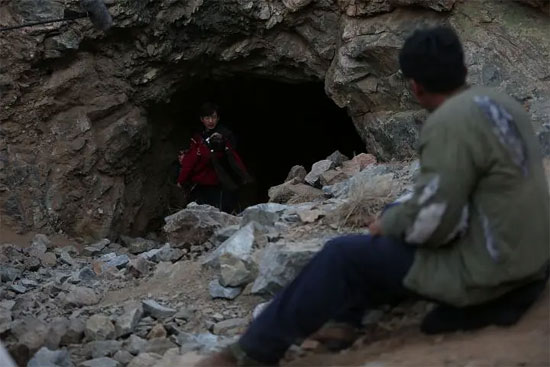
This is the most impactful instance of “relative silence” in my view, The class gap between these two men is similarly not enormous. Xu Wenjie, who rose from humble beginnings to become middle-class, should have possessed an innate ability to connect with Zhang Baomin (as seen in the scene where Cuixia remarks, “Does a lawyer even handle missing children?”—a line that feels natural even outside the narrative context). Zhang Baomin, sharing similar circumstances and through unexpected coincidence, also generously helped Xu Wenjie find his daughter. They had the potential to become close confidants… Yet, swept up by Chang Wannian, Xu Wenjie prematurely becomes a villain who betrays kindness. Even if he later tries to make amends, he cannot escape his guilt… Thus, when Xu Wenjie utters “No” at the end, everyone within and outside the film becomes utterly speechless.
This ending is the true conclusion of “Villain.” As for the subsequent “justice delayed but not denied” resolution, we needn’t dwell on it—it suffices to understand it implicitly.
Beyond the “explosive silence” between characters in the film, I also wish to address the “explosive silence” within its backdrop.
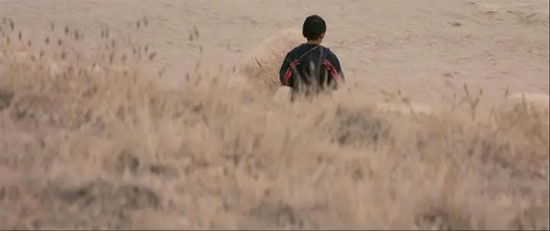
Perhaps because the film’s title had already triggered my OCD, I paid extra attention to every sound and movement during the screening. One particular sound, though not “striking or jarring,” persisted throughout the entire film: the explosions from mining operations. Zhang Lei heard it while herding sheep; Zhang Baomin heard it while searching for his son. Both the miners and nearby villagers had grown accustomed to it.
If you’re unfamiliar with the concept, take a look at the image below—it illustrates how most of the famous “sinkholes” on the Inner Mongolian grasslands came to be: after coal is mined out of small, unregulated mines, the surface soil collapses downward, forming sinkholes, collapse pits, and water-eroded gullies of varying sizes. To this day, this environmental problem remains fundamentally unresolved.

During that frenzied mining era, local authorities granted mining permits indiscriminately. Coal bosses exploited resources recklessly with outdated equipment, accompanied by relentless water extraction and environmental pollution in the grassland mining areas… While the film doesn’t explicitly address these contexts and issues, they emerge through numerous details: Zhang Baomin’s refusal to sign mining permits and his clash with villagers; the dead bird in the drainage ditch; the village chief hauling crates of bottled water home while Cuixia and others drink foul-tasting well water, their bodies worn down by chronic illness.
“Villain” isn’t an “environmental film,” yet it maintains a silent yet resolute stance on these issues.
It is precisely because the backdrop is rendered with such visceral authenticity that the film’s narrative gains its immense weight.

This cave, which once sheltered two children, endured long stretches of silence. Only when witnessing crime and rescue did it echo with noise, groans, and clamor. After the entire hillside was blown apart, it buried the evidence and bloodstains, turning instead to welcome rough men armed with shovels and picks… Yet ultimately, all clamor fades, and it returns to an even longer silence.
“Explosive sound” fleeting, “utter stillness” eternal. This, I think, is the inexpressible helplessness of “Villain.”
It is this realization that makes one appreciate how precious that moment was—when Zhang Lei pulled Yuan Yuan out of the cave and gazed upon the city’s “illusion”…

These scenes and images remain silent, yet they hold vibrant life within them—and a hope that, though small, stands tall.
Please specify:Anime Phone Cases » Villain 暴裂無聲 2017 Film Review: Sound is finite, while silence is infinite.